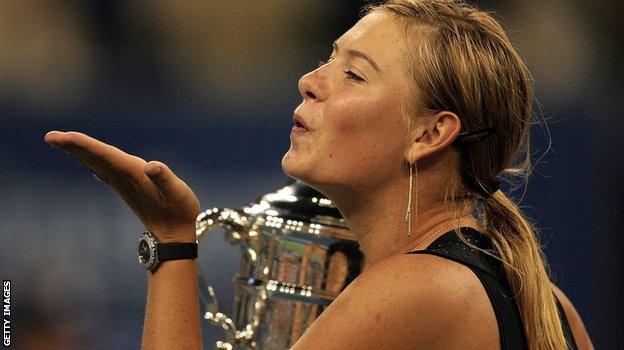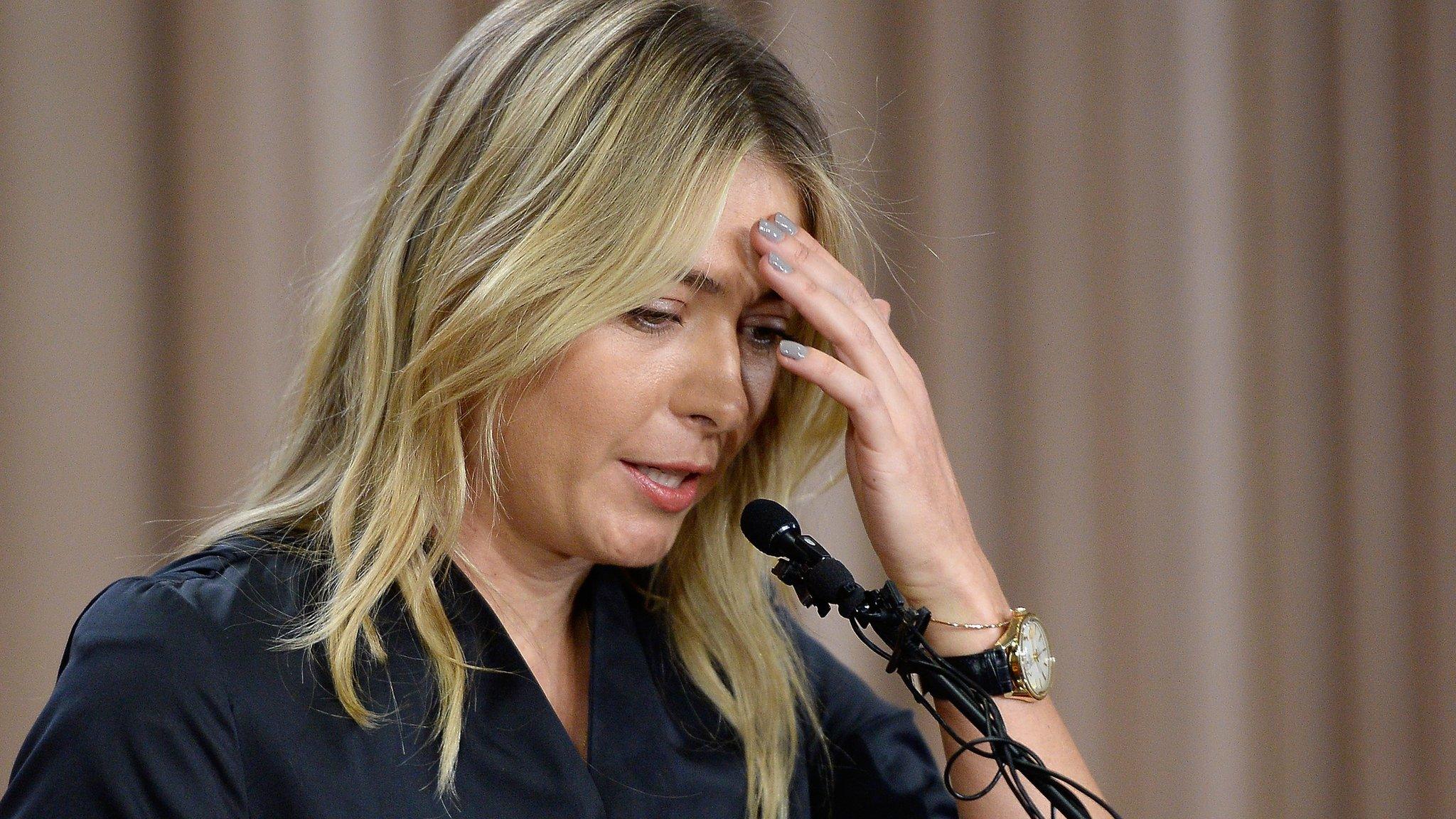Maria Sharapova failed drugs test 'reckless' - Dick Pound
- Published
Maria Sharapova reveals Australian Open failed drugs test
Maria Sharapova's failed drugs test was "reckless beyond description", according to former World Anti-Doping Agency president Dick Pound.
Sharapova, 28, revealed on Monday that she tested positive for the banned substance meldonium in January.
A number of sponsors have already distanced themselves from the Russian.
Pound cannot understand how Sharapova found herself in this situation, given the high stakes involved, both professionally and financially.
"Running a $30m business depends on you staying eligible to play tennis," he told BBC Sport.
Sharapova has been the highest-earning female athlete in the world in each of the past 11 years, according to the Forbes list.
However, sportswear giant Nike has suspended its relationship with the five-time Grand Slam winner, while watch manufacturer Tag Heuer has cut its ties.
German carmaker Porsche said it was "postponing planned activities" with Sharapova until the situation became clearer.
More on Sharapova |
|---|
Sharapova says she has taken meldonium since 2006 for health reasons.
However, it became a banned substance on 1 January after Wada deemed it had performance-enhancing properties.
Pound, who was head of Wada from 1999 to 2007, said Sharapova had made a "big mistake" and "should have known" the consequences of using it.
Maria Sharapova was reckless beyond description - Ex-Wada chief Dick Pound
"Anytime there is a change to the list, notice is given on 30 September prior to the change," he said.
"You have October, November, December to get off what you are doing.
"All the tennis players were given notification of it and she has a medical team somewhere. That is reckless beyond description."
How to make sure you won't fail a drugs test
Meldonium could have a positive effect on stamina and endurance because it has the ability to increase oxygen movement to muscles.
Pound said it was eventually added to the banned list because a lot of people began taking it for performance-enhancing reasons.
He added that most of the drugs of choice for dopers were "built for therapeutic reasons", like EPO, but that they all had side-effects that could be put to use by those seeking to gain an advantage over their rivals.
Grindeks, the Latvian company that manufactures meldonium, said a typical course of treatment should only run to a few weeks.
"Depending on the patient's health condition, treatment course of meldonium preparations may vary from four to six weeks," its statement read.
"Treatment can be repeated twice or thrice a year. Only physicians can follow and evaluate patient's health condition and state whether the patient should use meldonium for a longer period of time."
In response, Sharapova's lawyer, John Haggerty, said she had not been taking the drug every day for 10 years.
"That's simply not the case," he said, adding that she took meldonium "in accordance with the recommendations of her doctor".
The International Tennis Federation said Sharapova will be provisionally suspended from 12 March.
She faces up to a four-year ban, but Pound, 73, says suspensions can be reduced if "there is absolutely zero fault on the part of the athlete".
He said it was the ITF's responsibility to "propose" any ban and warned that Wada could appeal to the Court of Arbitration for Sport for an increase if it did not think the punishment was sufficient.

Maria Sharapova won the US Open in 2006, one of five Grand Slam titles
Sharapova's announcement, made at a hotel in Los Angeles on Monday, has polarised opinions.
World number one Serena Williams, who had beaten Sharapova at the Australian Open on 26 January before she tested positive, said the Russian has shown "a lot of courage" for accepting responsibility.
However, British sprinter Jeanette Kwakye, who was a 100m finalist at the 2008 Beijing Olympics, criticised Sharapova and felt her high public profile might mean she escapes with a light sentence.
"What we have in Maria Sharapova is a media darling," said Kwakye.
"She knows how to work the world of media, she knows how to spin and put things in her favour by breaking her own news.
"For somebody like her, it may be a lenient slap on the wrist."
- Published8 March 2016
- Published9 March 2016

- Published8 March 2016

- Published8 March 2016

- Published8 March 2016

- Published19 July 2016
